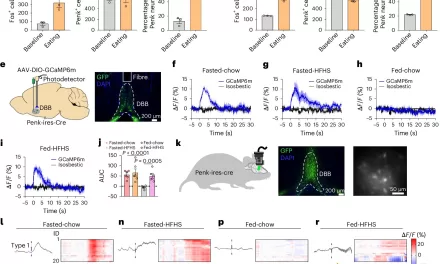Bitter taste has long been associated with warnings of potentially toxic substances, prompting many to avoid bitter foods as a precaution. However, a groundbreaking study by the Leibniz Institute for Food Systems Biology at the Technical University of Munich reveals that not all bitter-tasting compounds are harmful. The research uncovers intriguing new insights into why some bitter substances are actually nutritious and essential for health.
The Dual Nature of Bitterness
Our sense of taste serves as a crucial guide for making dietary choices. Sweet and umami flavors often signal energy-rich and nutritious foods, while salty flavors help maintain electrolyte balance. Sour tastes can indicate spoiled or unripe food, and bitter flavors have traditionally been seen as red flags for potential toxins.
In nature, many toxic compounds, such as strychnine and hydrogen cyanide, are indeed bitter. This evolutionary trait likely helps protect us from consuming harmful substances, particularly for vulnerable populations like infants. Yet, the new study challenges the simplistic view that bitterness equals danger.
Peptides and Amino Acids: Bitter Yet Beneficial
An interdisciplinary team led by molecular biologist Maik Behrens has investigated why some bitter substances are not only harmless but also beneficial. Their research reveals that five out of approximately 25 human bitter taste receptors respond to both free amino acids and peptides, as well as bile acids. Amino acids and peptides, which are released during protein digestion and are abundant in foods like cream cheese and protein shakes, can taste bitter yet are crucial for nutrition. Bile acids, on the other hand, are not commonly found in food but are important for digestion and metabolism.
A Surprising Structural Similarity
The study’s modeling experiments reveal that some bitter-tasting peptides can mimic the three-dimensional structure of bile acids within the receptor binding pocket. This structural similarity might explain why the same set of bitter taste receptors responds to both peptides and bile acids. Bioinformatician Antonella Di Pizio notes, “This incidental resemblance could elucidate why our receptors are tuned to detect both groups of substances.”
Evolutionary Insights
Genetic analyses conducted by the team show that the ability to recognize both bile acids and peptides is conserved across different species, including amphibians. Principal investigator Maik Behrens suggests that this ability predates the appearance of today’s flowering plants and may have originally evolved to regulate essential physiological processes rather than merely detect toxins. “Our findings suggest that bitter taste receptors may have roles in health beyond food selection, including potential functions in metabolism and immune response,” Behrens adds.
Implications and Future Research
The research, supported by the German Research Foundation and organized by Project DEAL, opens up new avenues for exploring the multifaceted roles of bitter taste receptors. The study not only enhances our understanding of taste perception but also highlights the complex relationship between taste and health. Future research may uncover additional functions of these receptors and their potential impacts on human well-being.
Background Information
- Amino Acids and Peptides: Essential for protein synthesis and nutrition. Peptides are shorter chains of amino acids, while longer chains are classified as proteins.
- Bile Acids: Produced in the liver, bile acids aid in fat digestion and metabolism.
- Bitter Taste Receptors: Approximately 25 types exist, playing roles in both taste perception and various physiological functions, including pathogen defense and metabolic regulation.
This study underscores that bitterness is not always a sign of danger but can signify valuable nutrients. It marks a significant step in understanding the intricate interplay between taste perception and health.












